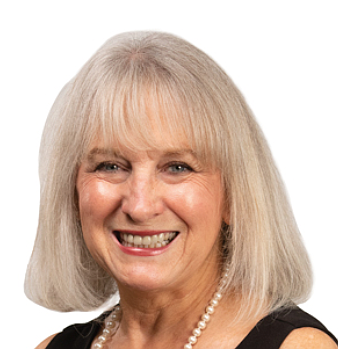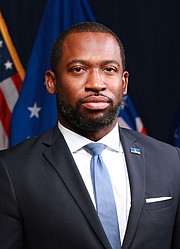Richmond Electoral Board to reverse course
Jeremy M. Lazarus | 8/3/2023, 6 p.m.
The Richmond Electoral Board is preparing to retreat from its controversial and evidently illegal plan to eliminate two early voting sites for the upcoming Tuesday, Nov. 7, general election, one at Hickory Hill Community Center in South Side and the other at City Hall.
Hit by strong backlash after the vote last month to shutter those sites as well as a stern, official legal opinion stating the action violated state law, the Republican- led board already has scheduled a special meeting for Friday, Aug. 4, to reverse course.
Expectations are that the board will vote to ensure those two sites will be open when early voting begins Friday, Sept. 22, and end the effort to limit in-person early voting to the less accessible city Office of Elections at 2134 W. Laburnum Ave.
Mayor Levar M. Stoney and other Democrats publicly pounded the board for voting 2-1 at its July meeting to keep those two sites shuttered, calling it a partisan attempt to suppress access to the ballot box and threatening to sue if the decision were not quickly changed.
The board’s lone Democrat, Joyce K. Smith, voted against the closure, while the third board member, newcomer Republican John A. Ambrose, supported his GOP colleague, C. Starlet Stevens, the board’s chair.
The vote came less than 60 days before the start of early voting, violating at least one state law that bars such action so close to the start of voting.
A board veteran Ms. Stevens, said fiscal prudence, not ideology drove the initial decision.
“My primary reason to not open the satellite locations at City Hall and Hickory Hill Community Center is the cost factor,” said Ms. Stevens, who is serving her sec- ond term as chair now that a Republican occupies the governor’s mansion.
“I, along with Registrar Keith G. Balmer reviewed the number of voters versus the cost to have these locations open,” she said. “The cost will be astronomical when you look at how many voters are projected to be coming in to vote versus what the City of Richmond would spend.”
Turnout is expected to be reduced in Richmond as there are no competitive races for the three House and two Senate seats that cover portions of the city.
The only ballot item with a potential to stimulate voting is the second referendum on whether the city should host a casino resort in South Side, if that stays on the ballot.
Turnout in the city can be strong when there are competitive General Assembly races as occurred in 2019 when 63,000 Richmond voters cast ballots to choose state senators and delegates.
But turnout can drop off sharply in years when the races are essentially decided before the vote, as in 2013 when only 36,000 people voted.
Still, according to both Mayor Stoney and City Council President Michael J. Jones, the Office of Elections has the money to open all three sites. They both said the 2023-24 budget included an extra $100,000 to cover the cost.
“That’s why we appropriated the money for the elections office to actually carry out and discharge their duties,” Dr. Jones said. “We as a council will not ask a department or a division to do something that we have not empowered them to do.”
Mr. Balmer said he presented the Electoral Board with a budget for operating the three early voting sites before the board voted just to open one.
Separately, City Attorney Laura K. Drewry issued a strongly worded letter July 27 reminding the board that it no longer had any authority over determining the number and location of early voting sites.
Ms. Drewry noted that in 2020, the General Assembly handed that authority to local governments and that Richmond’s governing body had that year established Hickory Hill and City Hall as official satellite voting sites for early voting.
“The board’s decision not to make these Council-established voter satellite offices available for absentee voting in connection with the Nov. 7 general election violates state law,” Ms. Drewry stated in her opinion.
“The decision essentially abolishes these locations as voter satellite offices, which power section 24.2-701.2 of the state code has expressly conferred upon the City Council alone.
“In addition,” she continued, “the board’s decision, by removing these voter satellite locations as voting options, conflicts with the council’s legislative power to expand access to the polls for its voters.”









